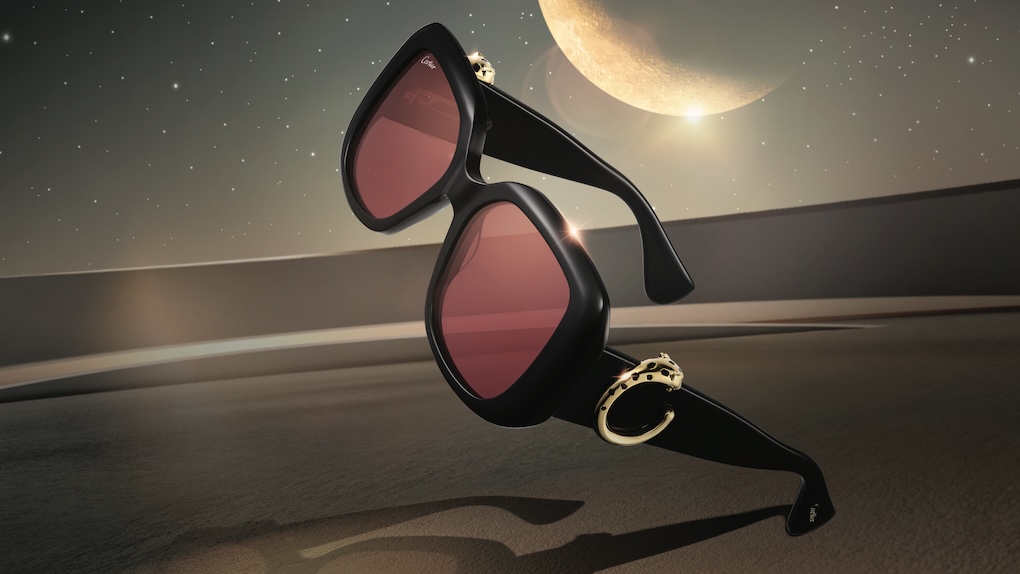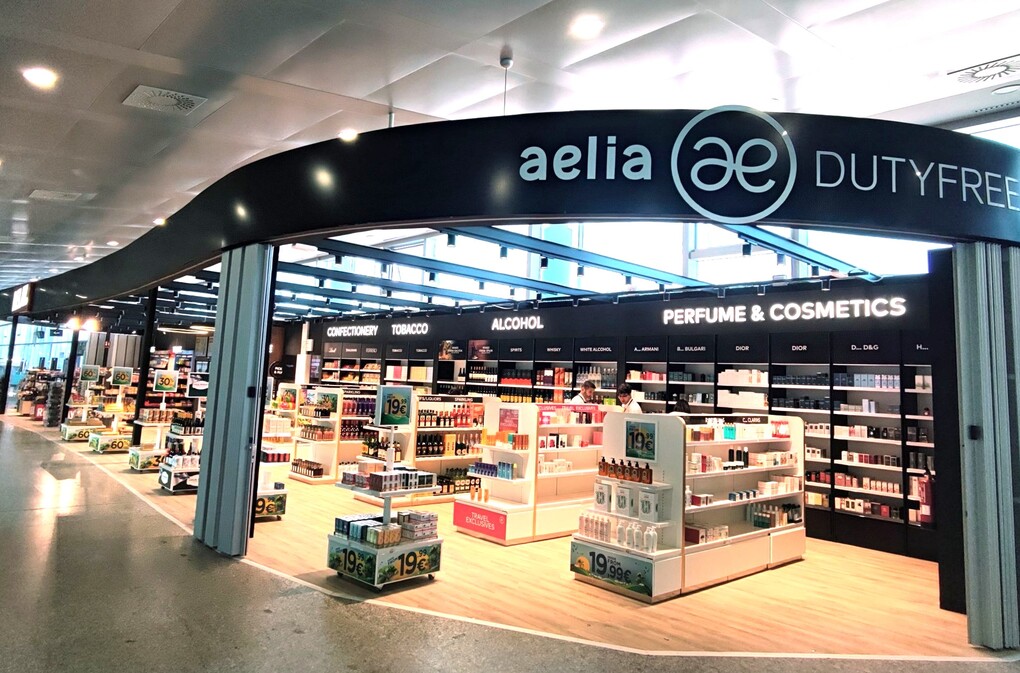INTERNATIONAL. Travel retailers and suppliers are monitoring a slowdown in Chinese luxury spending with increasing concern, in the light of sharply deteriorating US-China relationships and Apple’s profits warning on Wednesday.
On 2 January, the iPhone manufacturer’s CEO Tim Cook warned shareholders in a letter that the company was revising its guidance for the fiscal 2019 first quarter, which ended on 29 December.
Cook cited a variety of factors but most worryingly for the travel retail channel he highlighted an economic slowdown in China.

“While we anticipated some challenges in key emerging markets, we did not foresee the magnitude of the economic deceleration, particularly in Greater China,” Cook said. “In fact, most of our revenue shortfall to our guidance, and over 100 percent of our year-over-year worldwide revenue decline, occurred in Greater China across iPhone, Mac and iPad.
“China’s economy began to slow in the second half of 2018. The government-reported GDP growth during the September quarter was the second lowest in the last 25 years. We believe the economic environment in China has been further impacted by rising trade tensions with the United States.”
He continued: “As the climate of mounting uncertainty weighed on financial markets, the effects appeared to reach consumers as well, with traffic to our retail stores and our channel partners in China declining as the quarter progressed. And market data has shown that the contraction in Greater China’s smartphone market has been particularly sharp.”

Luxury stocks dive on Apple warning
Apple’s announcement had an immediate knock-on effect for the company’s share price – and those of numerous luxury houses. Yesterday the technology giant’s stock slumped by US$15.73 (-9.96%), touching a 52-week low of US$142 and closing at US$142.19 – its lowest close since July 2017. Since 3 October, Apple stock has plummeted -38.7% following its record US$232.07 close.
“The luxury goods and accessories industry has working in its favour that, unlike the iPhone vs. Huawei battle, it has no real rival in China — no homegrown Gucci-equivalent mega-brand.” – Jing Daily
The malady quickly spread to some of luxury’s – and travel retail’s – most illustrious names as shareholders were spooked by the prospect of a fall in Chinese confidence, travel and shopping. “Chinese shoppers are buying fewer smartphones. Expensive handbags and watches could be next,” wrote CNN in an article headed ‘Luxury brands are already feeling the China burn’.
“If Chinese shoppers weren’t willing to spend big on a new iPhone, the thinking goes, they may have also put expensive purchases of luxury goods on hold,” wrote reporter Ivana Kottasová.

The Estée Lauder Companies fell US$6.26 (-4.74%); while fellow beauty giant L’Oréal was off by €2.40 (-1.20%).
Beauty-to-fashion, Dior-to-DFS powerhouse LVMH Moët Hennessy Louis Vuitton was down €9.65 (-3.81%); and peers Kering and Richemont by €22.10 (-5.49%) and CHF1.74 (-2.76%), respectively.
Other major sector players to experience setbacks included Coty, down US$0.16 (-2.30%), while in luxury Burberry fell -5.91% and Mulberry -4.52%. Swatch Group, whose high-end brands such as Omega, Blancpain, Breguet, Tissot and Longines are highly popular with the Chinese, was down CHF10.00 (-3.49%). Tiffany & Co. was down by US$2.24 (-2.74%).

The Financial Times noted: “Chinese consumers accounted for one in three luxury purchases last year and by 2024 they will be responsible for 40 per cent of sales, according to BCG and Tencent.” As reported, China’s new e-commerce law, introduced on 1 January, is set to have a sharp impact on the daigou business that has fuelled Korean duty free spending in particular (but also luxury shopping worldwide) over the past 18 months.
Retailers, too, felt the pinch. Dufry eased CHF1.04 (-1.12%) yesterday. Shilla Hotel, parent of The Shilla Duty Free, was down by -1.93% mid-afternoon today Korean time, marking a -6.8% fall over the past five days and a -24.9% slump over the last three months. Korean beauty powerhouse AmorePacific Corporation, heavily dependent on Chinese travel shoppers, had lost KW8,500 (-4.37%) by 15.20 today, Seoul time.
China International Travel Service Corporation Limited stock fell by -4.46% yesterday but by 15.00 Beijing time had edged up CNY0.12 (+0.21%) today.
Don’t blame China, says Jing Daily The Moodie Davitt Report business partner Jing Daily (with whom we have an information-sharing agreement) has suggested that Apple’s woes do not necessarily correlate to a crisis for western luxury brands. In an article headed, As Troubled Western Luxury Brands Cry ‘Blame China,’ We Look Deeper, Jing Daily writes, “Apple follows Tiffany & Co., LVMH, and Richemont as firms that since October have specifically invoked problems in China’s economy for their lower-than-expected results or growth forecasts. “But as ‘blame China’ headlines mount, some investors noted that Apple also had fundamental problems closer to home — and that cell phone sales within China are still strong; consumers just aren’t buying iPhones. Indeed, Eastern luxury competitors are actually making some smart and profitable moves in China despite, or perhaps because of, the tougher environment. Still, there is no question that luxury brands in 2019 will have to work much harder and smarter to capture market share both on the mainland and with outbound Chinese shoppers.” Jing Daily noted that there are still bulls on the Chinese economy, among them Bain & Co. and UBS, “who see the sheer size and wealth of the consumer block in China fuelling luxury growth over the next decade regardless of near-term problems”.
“More recently, the company has seen a burst of nationalist buying: on social messaging platform WeChat, some users are posting about the importance of supporting the firm’s products because, last month, Canadian police arrested Huawei’s CFO Meng Wanzhou at the request of the United States over concerns about Iran bank transactions. “The luxury goods and accessories industry has working in its favour that, unlike the iPhone vs. Huawei battle, it has no real rival in China — no homegrown Gucci-equivalent mega-brand. So far. But Tiffany may need to watch its back: On December 21, China’s giant jewellery retailer Chow Tai Fook Jewellery Group signed a deal with Tencent Financial Technology. Starting this year, Tencent’s WeChat Pay Hong Kong can be used for all purchases at many stores on the mainland.” |




 The report continued: “So, as analysts focus on what Apple did wrong, within China there is more recognition of what its chief competitor, Huawei, has done right. In 2017, Huawei brought in a handful of celebrity ambassadors, some specifically meant to represent their collection, Novo, geared to younger consumers. It consistently underprices similar and concurrent iPhone models by 25 percent to 50 percent. Its third-quarter 2018 market share, according to data firm Counterpoint Research, stands at 23 percent versus Apple’s 9 percent.
The report continued: “So, as analysts focus on what Apple did wrong, within China there is more recognition of what its chief competitor, Huawei, has done right. In 2017, Huawei brought in a handful of celebrity ambassadors, some specifically meant to represent their collection, Novo, geared to younger consumers. It consistently underprices similar and concurrent iPhone models by 25 percent to 50 percent. Its third-quarter 2018 market share, according to data firm Counterpoint Research, stands at 23 percent versus Apple’s 9 percent.







